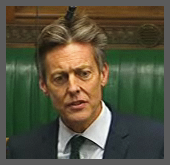 On 23rd October I spoke in a Westminster Hall debate about the Greenpeace activists currently being detained by Russian authorities. The transcript of my contribution is below.
On 23rd October I spoke in a Westminster Hall debate about the Greenpeace activists currently being detained by Russian authorities. The transcript of my contribution is below.
Mr Ben Bradshaw (Exeter) (Lab): My comments—I shall keep them brief, because I know that many Members want to speak—follow on nicely from those of the hon. Member for Cheltenham (Martin Horwood). I want to press the Government on what exactly they have been doing for the past month, and to question the “softly, softly” approach that they appear to have adopted.
I wrote to the Foreign Secretary a month ago, and I still have not received a reply to my questions. It has not escaped my notice that the Governments of other nationals held captive in Murmansk have been much tougher. The Dutch are taking legal action; Hillary Clinton, who has been mentioned, has spoken out very strongly; and Angela Merkel, the German Chancellor, who does not even have any nationals held in Murmansk, has picked up the phone to President Putin and made it clear that what has happened is unacceptable and should be resolved quickly. Yet when the Prime Minister was asked at Prime Minister’s questions last Wednesday what he has been doing, he said that he has simply been asking for updates. I am afraid that that is not good enough.
Alison Seabeck (Plymouth, Moor View) (Lab): I want to put on the record that my right hon. Friend’s point is supported by constituents of mine who are friends of Kieron’s. They have written to me to say that our Prime Minister really should get involved. I am sure that my right hon. Friend agrees.
Mr Bradshaw: I absolutely agree, not least because more Britons are being held by the Russians in Murmansk than people from any other country. As has already been said, there are six of them, of whom three are from Devon.
In a letter to me from his jail in Murmansk, the marine engineer from Exeter, Iain Rogers, has complained bitterly about what he sees as the British Government’s lack of action, compared with what is being done by his fellow captives’ Governments. He makes this direct appeal to the Prime Minister:
“I find it hard to believe that you are not outraged that British subjects have been kidnapped at gunpoint, detained and abused and yet so far you have done nothing except sit on your hands. It is time to act Mr Cameron. You have a duty to protect UK citizens and international law.”
Iain’s mum, Sue Turner, visited the Foreign Office last week. I understand that she did not get to see a Minister, which is regrettable, but she did see an official. At a vigil held for the Arctic 30 in Exeter on Sunday, she told me that she and the rest of the relatives share a concern that they are not being given enough information. She said that when they asked why more was not being done and said publicly, she was told by the Foreign Office official that Russia had not responded well to criticism from abroad in the past. We all know that, and it may well be the case, but this has been going on for more than a month.
Many of us do not have a great deal of faith in the Russian judicial system, and other Members have already referred to the prosecution of Pussy Riot and the state-sponsored persecution of gay and lesbian people in Russia. The British Government should make it absolutely clear to the Russians—yes, privately, if necessary—that the situation is unacceptable, and that severe damage will be done to our bilateral relations and Russia’s already battered international image unless the hostages are freed forthwith. The Government also need to tell the relatives and the British public what they are doing to help.
My hon. Friend the Member for Rhondda (Chris Bryant) has quite rightly said that it would be inconceivable for the Sochi winter Olympics to go ahead unaffected, if these 30 people from all over the world are still held illegally in a Russian goal. Does any hon. Member think that that would be an acceptable backdrop to an international sporting event? I hope that the Minister will reassure us by telling us what the Government are doing, and what representations he, and the Prime Minister personally, have been making. Are they supporting or are they a party to the Dutch legal action, and if not, why not?
Mr Cox: On the Dutch legal action, it is important to remember that only the Dutch have the standing to bring such an action: it was their sovereign-flagged ship, and they therefore have that status under the convention. We could not bring that action. Of course, we can support it morally, but we cannot be a party to it.
Mr Bradshaw: I defer to the hon. and learned Gentleman’s superior legal knowledge, but I hope that the Minister will at least tell us that we are supporting the Dutch legal action politically and morally.
Finally, what conversations have there been between the Prime Minister or the Foreign Secretary and Cathy Ashton? I would have thought that—given her very good reputation in recent months for bringing together parties, including the Russians, over Iran and Syria—the European Union’s foreign policy representative would be well placed to organise a co-ordinated European Union response to this intolerable behaviour by the Russian authorities.

